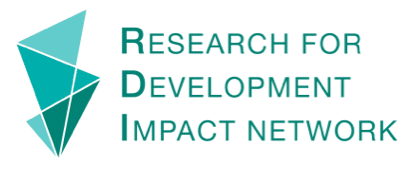There is no guaranteed formula for achieving maximum impact in the field of international development, as outcomes are subject to countless external forces far beyond any one person’s control. However, there are a series of strategies and techniques that researchers, practitioners, and evaluators can utilise to increase the likelihood of their work having an impact.
Here we have a curated collection of guidance to best enhance research communications:
- Six useful guides on communication strategies (10min, blogpost)
- The CARIAA RiU Learning Guide (20min, PDF)
- Enhancing Research Impact in International Development: A Practical Guide for Practitioners and Researchers (60min, PDF)
- Improving Research Use in International Development: An RDI Network Action Research Project (90mins, PDF)
Here is a collection of our key findings from the above collection:
- Know your audience. To reach your target audience, you need to write for your target audience. Significant attention should be paid to understanding the cultural context in which your report exists. Acknowledge and understand the internal assumptions underpinning your output(s).
- Set goals. There are various strategies for management of goals and expectations. Most important is to have a set of questions to ask to help stakeholders come together and create a shared understanding their goals.
- Revise, revise revise! All documents placed heavy emphasis upon constant monitoring and revision, encouraging researchers to self evaluate their efforts to ensure that they are positioned to maximise research impact. Plans must be made to successfully accept and incorporate feedback into future efforts.
- It is very difficult to track your impact: There are multiple explanations as to why change occurs and what prompts it, so it can be challenging and unrewarding for researchers to track their impact. However, there are identifiable key moments of engagement that can be linked to contributing to a wider change.
- Once published, research is beyond your control. There is always the possibility for research to have unintended, adverse impact. To minimise the likelihood of “grimpact”, researchers, practitioners, and evaluators need to spend time considering all potential outcomes of research.



